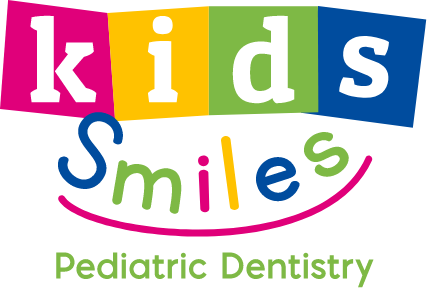When you understand the role that enamel plays in dental health, you know that it’s worth taking steps to preserve your enamel and maintain strong teeth!
If you’ve noticed a loss of enamel in your child’s teeth (or your teeth) and have questions, here’s everything you need to know:
What is tooth enamel?
Enamel is one of the four dental tissues that make up teeth. Three of our four dental tissues are ‘hard’ tissues, and these include enamel, dentin and cementum. The fourth dental tissue, pulp, is a soft tissue located at the center of a tooth.
Hard dental tissues, like enamel, serve as protective layers for the soft inner layer of teeth (pulp), which serves as the nerve center for teeth. The pulp contains nerves, blood vessels and connective tissues.
The enamel is the outermost layer of calcified tissue that covers the sensitive inner layer called dentin. Your enamel helps protect the more vulnerable parts of your teeth and is your teeth’s first line of defense against damage and decay.
Over time, enamel can start to degrade and deteriorate due to certain habits, such as:
- Consuming acidic foods and beverages (sodas and candies)
- Poor oral hygiene routine
- Teeth grinding and clenching
- Over-brushing (brushing teeth with too much pressure or force)
Once this degradation takes place, can enamel be restored?
Does tooth enamel grow back?
Because tooth enamel does not consist of living cells, it does not grow back or repair naturally. However, while you cannot repair your enamel, you can help your teeth remineralize.
Remineralizing your enamel means restoring some of its minerals to help recoup the loss of your protective enamel. You can help remineralize your teeth with a few healthy habits.
Ways to remineralize teeth for enamel repair
1. Use fluoride toothpaste and mouthwash.
Fluoride is a naturally-occurring mineral that strengthens enamel and helps to prevent cavities, reverse early stages of gum disease (gingivitis), and protect the teeth against further enamel loss. It’s essentially a vitamin for your teeth!
You can find fluoride in ADA-approved toothpastes and mouthwashes. Brush your teeth with fluoride toothpaste twice a day and use fluoride mouthwash at least once a day to help repair your enamel.
2. Eat a nutrient-rich diet.
Eating a balanced diet filled with nutrients promotes good dental health, gives your enamel the support it needs to remineralize, and provides your saliva with the nutrients it needs to help the enamel remineralize. Your saliva plays a role in your dental health by neutralizing harmful acids and delivering calcium, phosphate and fluoride to the teeth to strengthen dental tissues.
Foods that are high in vitamin D, calcium and vitamin K can help restore enamel. Think cheese, milk, yogurt, salmon, tuna, seeds, nuts, avocados, olive oil, carrots and fruits.
3. Be cautious of your sugar intake.
Bacteria feed on sugar, so when there is an excess of sugar in the mouth or sugars left in the teeth, this leads to an increase in bacteria growth. Bacteria lead to plaque buildup, and plaque consists of acids that attack teeth and dissolve enamel. By keeping your sugar intake in check, you can reduce bacteria growth and help preserve your enamel and other protective dental tissues.
4. Visit your dentist regularly!
Your dentist is here to help you maintain a strong and healthy smile. It’s what we do! During your regular check-ups, your dentist will clean your teeth to keep plaque and tartar to a minimum, which helps to preserve your enamel. This is when our pediatric dentists will also recommend a fluoride treatment to help prevent tooth decay and strengthen the enamel.
Teeth cleanings are just as important for baby teeth as they are for permanent teeth. The American Academy of Pediatric Dentistry and American Academy of Pediatrics recommend that every child sees a dentist by the time their first tooth erupts and no later than their first birthday!
Still have questions about enamel repair?
At Kids Smiles Pediatric Dentistry, we’re here to answer your questions. Please don’t hesitate to reach out to us. We’re happy to discuss any of our treatments or recommendations with you!
Our Kids Smiles team is led by renowned pediatric dentist, Dr. Frank Sierra, who has more than 25 years of experience providing compassionate, expert care for children and teens.
We are your trusted pediatric dental experts in Tampa Bay and Bradenton! Ready to schedule your first visit? Schedule an appointment with us today.


